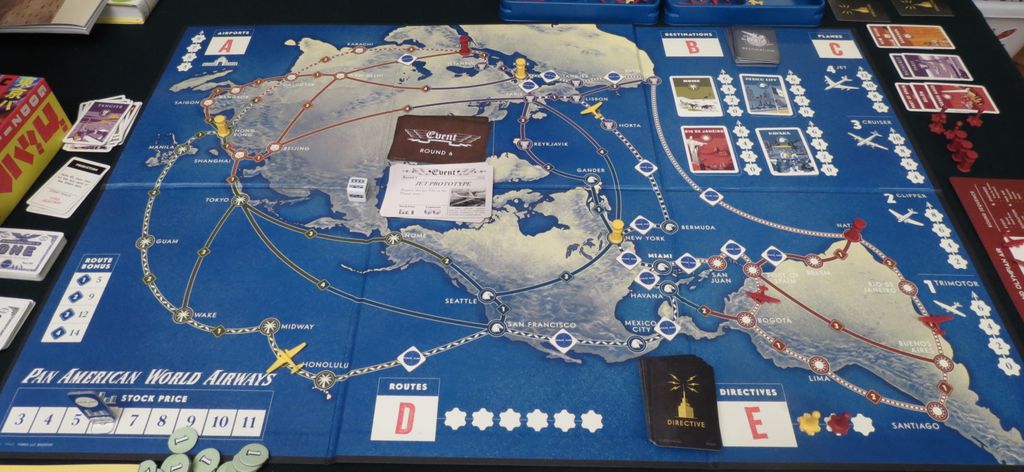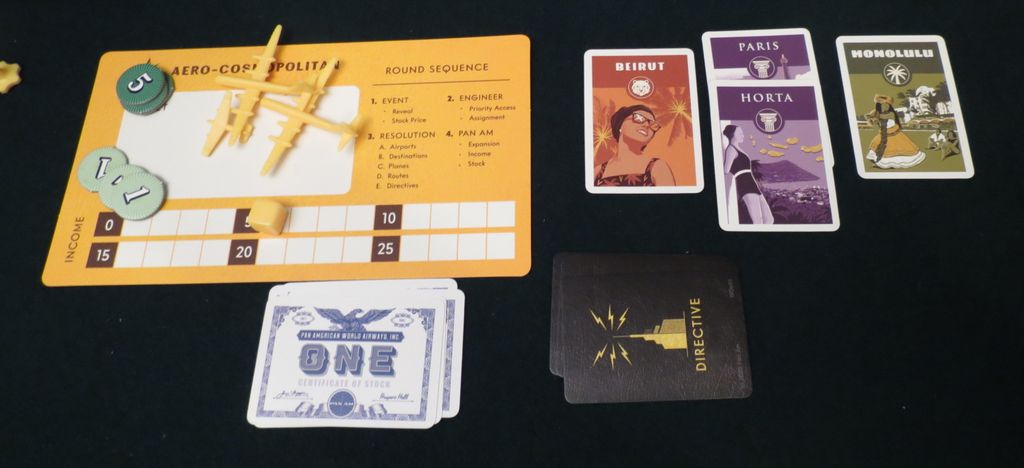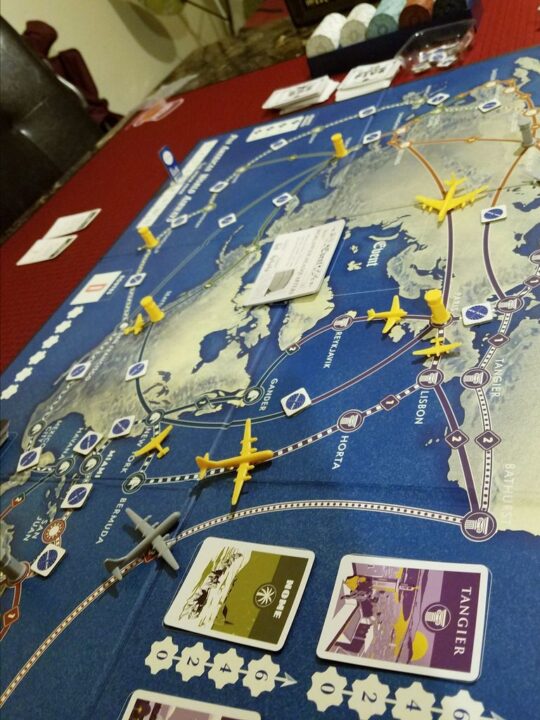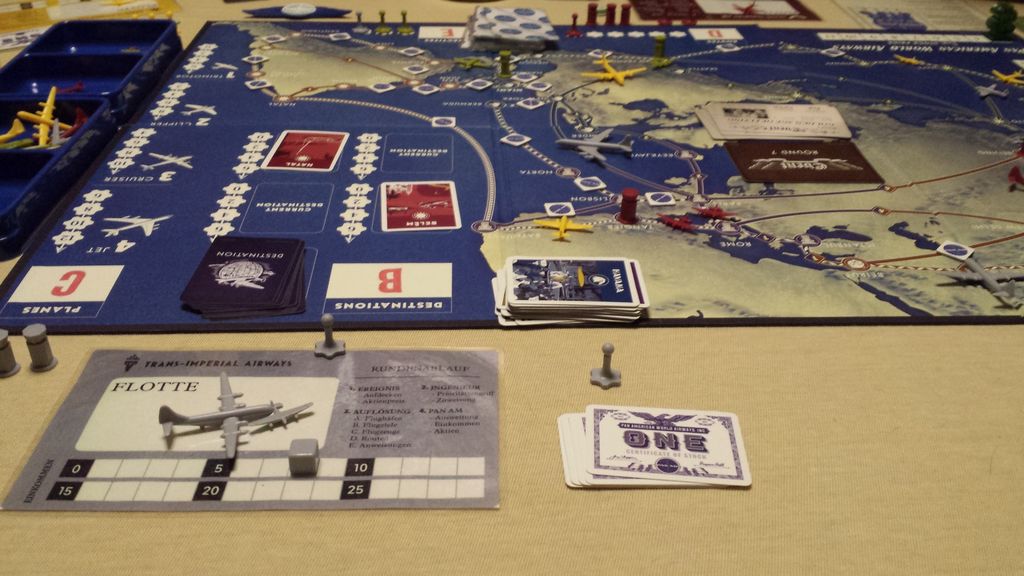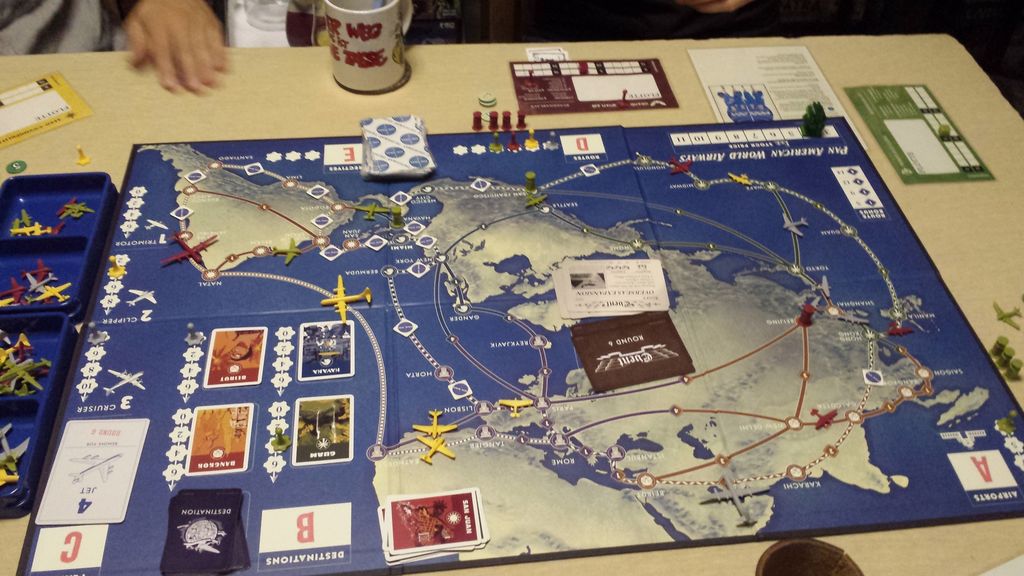Overview
Welcome to my comprehensive review of Pan Am. This board game takes you back to the golden era of flight where clever planning, strategic acquisitions, and diplomatic prowess will be the wind beneath your wings. Throughout my review journey, we’ll dive into the mechanics and explore vital aspects of game design. I’ll share firsthand experiences that illustrate the skillful dance between strategy and luck, dissect the player dynamics contributed largely by negotiation, and highlight the game’s tempo – all to give you a solid understanding of this high-flying game.
How It Plays
Delve into the golden age of air travel with Pan Am. In this strategic board game, players are airliners competing to acquire lucrative routes, outmaneuver rivals, and eventually sell their assets to Pan American World Airways. Let’s breeze through the basics from runway to takeoff.
Setting Up
Gather your fellow moguls and assign the roles. Unfold the world map board and place it at the center of your playing area. Distribute runway markers, planes, and cash. Each player gets a starting route card, signaling the beginning of their venture into the skies.
Gameplay
Each round starts with bidding for rights to establish air routes, purchasing airports, and attempting to edge out competitors for lucrative Pan Am contracts. Secure your flight paths and expand your airline empire thoughtfully.
Winning the Game
Victory in Pan Am goes to the astute player who best combines strategy, negotiations, and timing. Winning isn’t about having the largest fleet but the most Pan Am stock, achieved through shrewd business dealings and successful mergers.
Want to know more? Read our extensive strategy guide for Pan Am.
The Delicate Dance of Destiny and Decision
In every game night, there’s that critical conversation about the balance between strategy and luck, and my experiences with Pan Am illustrate this beautifully.
Strategic Maneuvering
[Pan Am] distills the ebb and flow of planning versus chance. In one session, I vividly remember banking on a meticulous long-term strategy. I skillfully navigated my company’s growth, plotting each move like a chess grandmaster. But strategy in Pan Am also means adapting to the changing winds of luck.
The Winds of Chance
Just as often, the draw of an event card swerved our fates into unexpected detours. There’s a peculiar thrill in those dicey moments when one’s well-laid plans meet head-on with the caprices of fate. As dice clatter and cards fly, players must find harmony in this undisclosed choreography. Ultimately, the party starts anew each round; it’s dance where luck changes tempo, and improvisation becomes key.
Linking hands from strategic foresight to the excitement of fortune, Pan Am keeps you on your corporate toes. Twist of fate – a perfect merger into our next consideration: Player Interaction and Negotiation.
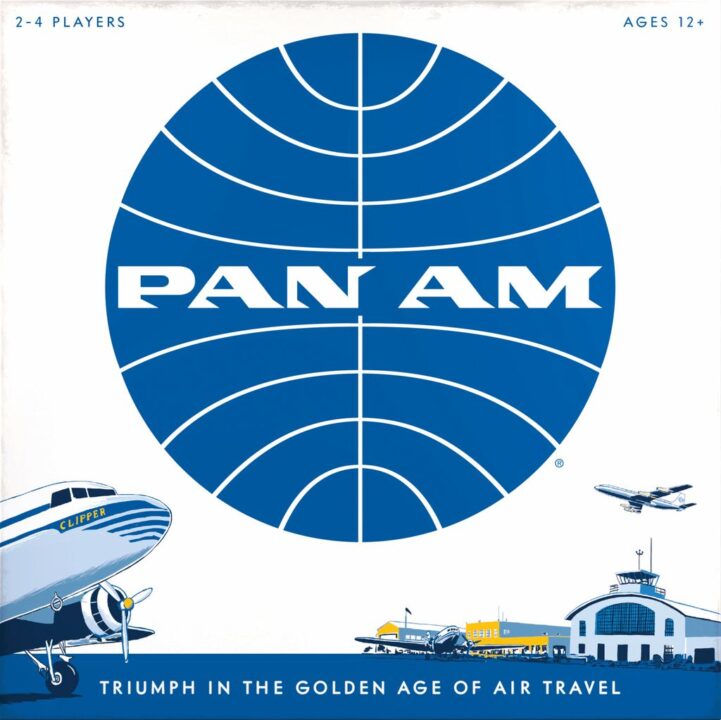
A Game of Wits and Allies
In the social skies of Pan Am, the richest elements are woven from the intricate web of player interaction and negotiation. Often, the moods at the table are light, with friendly jests, but then the tone easily steels as a crucial route is up for grabs. Unforeseen Alliances My last session had an especially memorable moment when a spontaneous alliance swayed the control of a pivotal flight path, reminding everyone that fortunes in this game are as changeable as the winds.
Negotiations Take Flight Smooth as an airplane easing onto the runway is the ebb and flow of trades in Pan Am. Bargains struck have layers; it’s not just about the immediate round but how it’ll play into the broader strategy. Laying the groundwork for a deal can be as much of an adrenaline rush as claiming a route. Indeed, these encounters shape the essence of every session, crafting stories that outlast the game night itself.
Next, we’ll cruise into the effects of game length and pacing in the Pan Am Review, where time really is money.
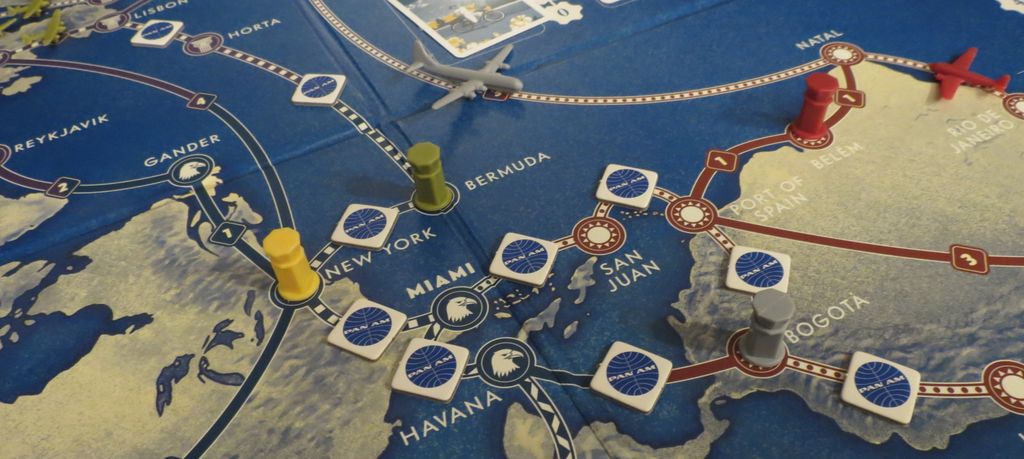
The Rhythms of Airline Empires
Reflecting on my sessions for the Pan Am review, ‘Game Length and Pacing’ strike as crucial. In Pan Am, Tracking Flight Timeliness resonates deeply with the pacing. Originally, I feared elongated drags or sprints of luck that could overshadow strategic planning, but I found the length well-suited for the decision space provided. Ironically, the game mirrors the real-world airline industry’s need for timeliness and schedule efficiency. Just as Pan Am itself strived for punctuality, so does game time smoothly advance, maintaining a tempo that respects our time. The Layover Experience Much like a well-timed layover, Pan Am provides a brief, engaging stop in your gaming journey – succinct enough to crave another flight without over-staying its welcome. The pacing keeps players engaged throughout, avoiding the commonplace late-game lulls. So buckle up; I wholeheartedly recommend a boarding pass to Pan Am.
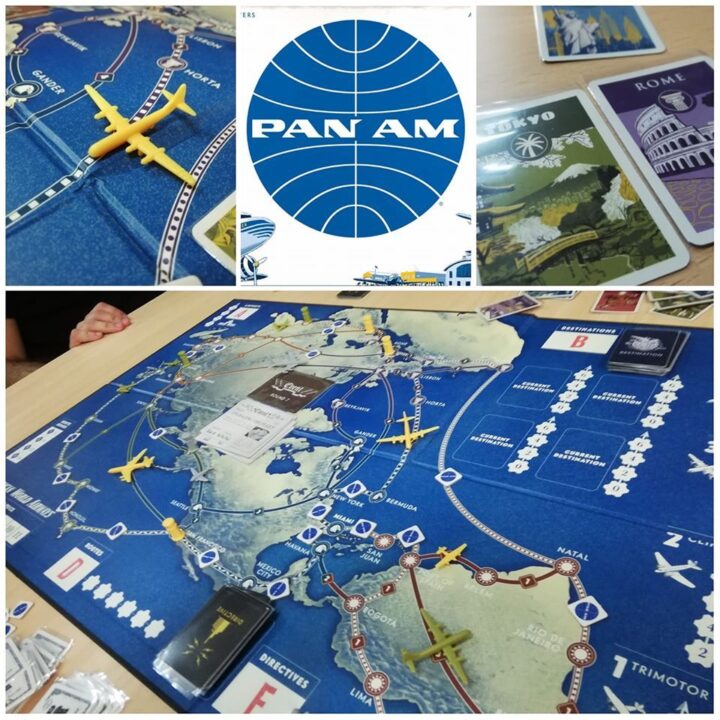
Conclusion
As we pull into the terminal of this Pan Am Review, reflecting on the strategic depth, social interplay, and satisfying tempo, gives a great snapshot of what makes this game fly high. The balance between strategic plannings against the thrill of dice rolls aligns perfectly with thrilling auctions and the cutthroat nature of route acquisitions. What sets Pan Am apart is its ability to combine these elements into an exciting journey players will want to embark on repeatedly. The diverse strategies and opportunities for negotiation spark interaction at every altitude, and the well-paced game length ensures it’s long enough to engross yet concise enough to leave everyone craving another trip. It’s these mechanics that wholeheartedly merit a recommendation for any gamer looking to expand their horizons.

